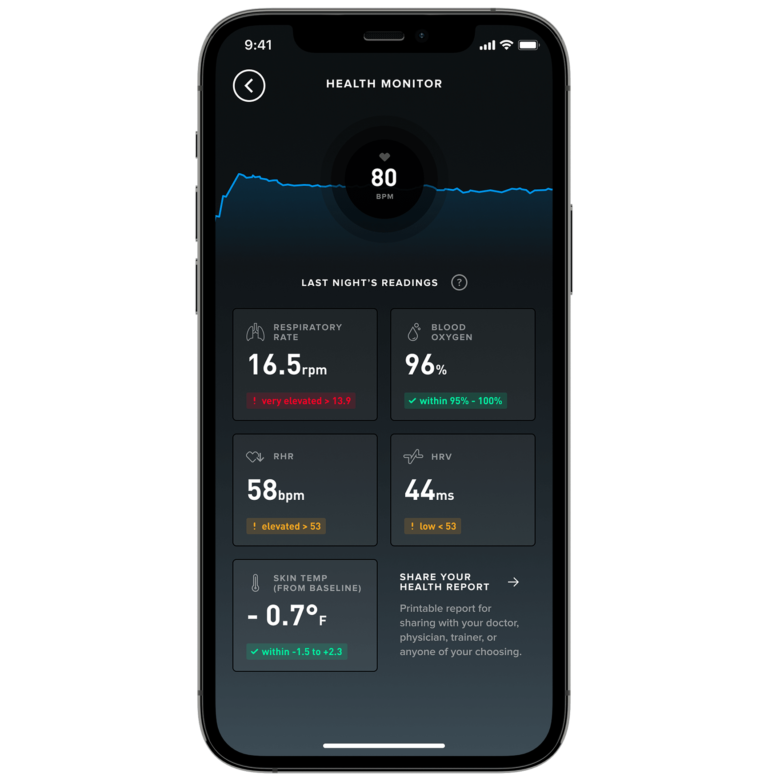Introduction
Why is my heart rate high on easy runs? This question has puzzled many runners who expect their heart rate to stay within a specific range during low-intensity workouts. This comprehensive article will explore the top 10 reasons behind an elevated heart rate during easy runs and provide valuable insights to help you optimize your training. Understanding why your heart rate may be high on easy runs is crucial for improving cardiovascular fitness and achieving your running goals.
What is Heart Rate and Its Importance in Running?
Heart rate refers to the number of times your heart beats per minute. It is a crucial metric in running as it provides valuable insights into your cardiovascular fitness and exertion level. By monitoring your heart rate, you can gauge the intensity of your workouts and make adjustments accordingly. Understanding the relationship between heart rate and running performance is essential for training optimization.
The Role of Heart Rate Zones in Running
Heart rate zones categorize your heart rate into different intensity levels, each serving a specific purpose during training. These zones help you structure your workouts effectively and ensure you’re training at the appropriate intensity for your goals. Let’s take a closer look at the various heart rate zones and their significance in the running:
Zone 1 – Easy/Recovery Runs
Zone 1 corresponds to easy or recovery runs where the effort level is light and focuses on active recovery. This zone allows your body to recover from more intense workouts and enhances aerobic capacity.
Zone 2 – Endurance Runs
Zone 2 is associated with endurance runs, where you maintain a conversational pace. This zone improves your aerobic capacity, builds endurance, and promotes fat utilization as a fuel source.
Zone 3 – Tempo Runs
Zone 3 involves tempo runs performed at a comfortably hard pace. Training in this zone enhances your lactate threshold, allowing you to sustain faster speeds for longer durations.
Zone 4 – Threshold Runs
Zone 4 is the threshold zone, where you run at a hard pace below maximum effort. This zone helps improve your lactate clearance and raises your anaerobic threshold, enabling you to run faster for extended periods.
Zone 5 – Interval Training
Zone 5 represents high-intensity interval training (HIIT) sessions, where you push your limits through short, intense bursts of effort. Interval training enhances your speed, power, and anaerobic capacity.
Top 10 Reasons for High Heart Rate on Easy Runs
- Insufficient Recovery
- Dehydration
- Poor Sleep Quality
- Nutritional Imbalance
- Stress and Anxiety
- Medications or Supplements
- Environmental Factors
- Underlying Health Conditions
- Overtraining Syndrome
- Individual Variations Genetics
Insufficient Recovery
One possible reason for a high heart rate during easy runs is inadequate recovery. If you haven’t allowed enough time for your body to recover from previous intense workouts, your heart rate may remain elevated during what should be an easy run. Insufficient recovery can lead to accumulated fatigue and impaired performance.
Dehydration
Dehydration can significantly impact your heart rate and overall performance. When dehydrated, blood volume decreases, causing your heart to work harder to pump oxygenated blood to your muscles. This increased effort can increase heart rate even during easy runs. Hydrate properly before, during, and after your runs to maintain optimal fluid balance.
Poor Sleep Quality
Inadequate sleep or poor sleep quality can contribute to elevated heart rate levels during easy runs. When you don’t get enough restful sleep, your body’s stress response is heightened, leading to increased heart rate and decreased recovery. Prioritize quality sleep to optimize your running performance.
Nutritional Imbalance
A lack of proper nutrition or an imbalance in your diet can impact your heart rate during easy runs. Poor fueling before or during your runs can cause your body to work harder, resulting in a higher heart rate. Ensure you consume a well-balanced diet with adequate energy and nutrients to support your running needs.
Stress and Anxiety
Psychological stress and anxiety can manifest physically, elevating your heart rate during easy runs. Stress activates the body’s fight-or-flight response, increasing heart rate and heightened alertness. Managing stress through relaxation techniques and stress-reducing activities can help regulate your heart rate and improve your running experience.
Medications or Supplements
Certain medications or supplements can affect heart rate and potentially increase it during easy runs. If you take any medications or supplements, consult your healthcare provider to determine if they could contribute to your elevated heart rate. They may be able to adjust your dosage or recommend alternatives.
Environmental Factors
Environmental conditions such as heat, humidity, or altitude can impact your heart rate during easy runs. Higher temperatures and humidity levels require more effort from your body to cool itself, resulting in an elevated heart rate. Similarly, running at higher altitudes with lower oxygen levels can increase heart rate as your body adapts to the reduced oxygen availability.
Underlying Health Conditions
Certain medical conditions, such as thyroid disorders, anemia, or cardiovascular issues, can cause a higher resting heart rate and elevate it during easy runs. If you consistently experience a high heart rate during your runs, despite addressing other factors, it’s advisable to consult a healthcare professional for a comprehensive evaluation.
Overtraining Syndrome
The overtraining syndrome occurs when you exceed your body’s ability to recover from training stress, leading to a range of symptoms, including a persistently high heart rate. Your heart rate may remain elevated even during easy runs if you engage in excessive training without adequate rest and recovery. Balancing your training load with rest and recovery is crucial to avoid overtraining.
Individual Variations and Genetics
Everyone is unique, and genetics play a role in determining heart rate responses. Some individuals naturally have a higher resting heart rate and experience higher heart rates during exercise, even at relatively easy intensities. While genetic factors cannot be altered, understanding your baseline heart rate can help you gauge your performance more accurately.
Warning Signs Your Running Heart Rate Is Too High
Monitoring your heart rate while running can provide valuable insights into your cardiovascular health and overall fitness level. While it’s normal for your heart rate to increase during exercise, an excessively high heart rate during running may indicate potential issues that require attention. Here are some warning signs that your running heart rate might be too high:
1. Persistent High Heart Rate: If you consistently notice a significantly elevated heart rate during your runs, even at relatively easy paces, it could be a sign that your body is not recovering adequately from previous workouts or that there might be an underlying health concern.
2. Difficulty Breathing: Struggling to catch your breath while running, even at moderate intensities, can indicate that your heart rate is climbing to unsustainable levels. This may be a sign of overexertion or cardiovascular problems.
3. Dizziness or Lightheadedness: Feeling dizzy or lightheaded during or after your runs may indicate that your heart rate is excessively high and your body is struggling to supply enough oxygen to your brain.
4. Chest Pain or Discomfort: Experiencing chest pain or discomfort while running should never be ignored. It could be a warning sign of an underlying heart condition that requires immediate medical attention.
5. Rapid Heart Rate Recovery: Monitoring your heart rate recovery after intense intervals or sprints can also be revealing. If your heart rate remains significantly elevated for an extended period after stopping exercise, it might indicate that your cardiovascular system is under stress.
Tips to Lower Your Heart Rate While Running
Lowering your heart rate during running is essential for optimizing performance, reducing the risk of overtraining, and improving cardiovascular health. Here are some effective strategies to help you achieve a more controlled heart rate during your runs:
- Warm-Up Properly: Always start your runs with a dynamic warm-up. Gentle movements and light jogging help gradually increase your heart rate, preparing your body for more intense exercise. A proper warm-up can prevent a sudden heart rate spike during your run’s initial phase.
- Monitor Your Effort Level: Pay attention to your perceived effort while running. On a scale of 1 to 10, where 1 is very light and 10 is maximum effort, aim to keep your effort level between 5 and 7 for most of your runs. This moderate effort ensures you challenge yourself without pushing your heart rate too high.
- Utilize Interval Training: Incorporate interval training into your routine. Alternating between short bursts of high-intensity running and active recovery periods allows your heart rate to fluctuate, enhancing cardiovascular endurance and efficiency.
- Include Regular Rest Days: Rest days are crucial for allowing your body to recover and adapt to the demands of running. Adequate rest prevents overtraining and helps keep your heart rate in check during subsequent runs.
- Implement Zone 2 Training: Familiarize yourself with heart rate training zones. Zone 2 training involves running at a pace where you can comfortably hold a conversation. By staying within this zone for a significant portion of your runs, you can improve your aerobic capacity and reduce stress on your heart.
- Manage Stress Levels: High-stress levels can lead to an elevated heart rate during running. Incorporate stress-reduction techniques into your daily routine, such as meditation, yoga, or time in nature, to keep your heart rate stable and improve overall well-being.
- Gradually Increase Mileage: Avoid sudden and drastic increases in mileage. Gradually build up your running volume, allowing your cardiovascular system to adapt slowly. This approach helps maintain a lower heart rate during your runs.
- Optimize Your Nutrition: Proper nutrition significantly affects heart rate regulation. Consume a balanced diet that includes a mix of complex carbohydrates, lean proteins, and healthy fats to provide your body with the necessary fuel for running efficiently.
- Mind Your Cadence: Pay attention to your running cadence—the number of steps you take per minute. Aim for a cadence of around 170-180 steps per minute, as this can help improve running efficiency and reduce unnecessary stress on your heart.
- Listen to Your Body: Lastly, always listen to your body. It might indicate overtraining or an underlying health issue if you feel excessively fatigued or notice a consistently elevated heart rate during runs. Don’t hesitate to consult a healthcare professional or a running coach for personalized guidance.
Remember, every runner is unique, and finding the right approach to lower your heart rate may require some experimentation. Patience and consistency in implementing these tips will ultimately lead to improved running performance and a healthier heart.
WHOOP Tracks Your Heart Rate While Running
One effective tool for monitoring your heart rate during running and other activities is the WHOOP fitness tracker. WHOOP provides valuable insights into your heart rate, variability, sleep quality, and recovery status.
By wearing the WHOOP strap during your runs, you can track your heart rate in real time and analyze the data after each workout. This information can help you optimize your training, prevent overtraining, and improve your overall performance.


Frequently Asked Questions (FAQs)
How Can I Lower My Heart Rate During Easy Runs?
Optimize factors such as recovery, hydration, sleep, nutrition, stress management, and training balance to lower your heart rate during easy runs. These strategies can help regulate your heart rate and improve your overall running experience.
Can A High Heart Rate During Easy Runs Indicate A Medical Condition?
Yes, a persistently high heart rate during easy runs can be a sign of an underlying medical condition. If you’re concerned about your heart rate or experiencing other symptoms, it’s advisable to consult a healthcare professional for a thorough evaluation.
Should I Be Worried If My Heart Rate Is High During Easy Runs?
A: While an elevated heart rate during easy runs can be concerning, it’s essential to consider various factors that may contribute to it. You can better manage your heart rate and optimize your running performance by addressing potential causes such as hydration, sleep, stress, and training load.
How Long Does The Heart Rate Normalize After A Run Take?
The time it takes for your heart rate to return to normal after a run can vary depending on factors such as your fitness level, the intensity of the run, and your recovery capabilities. Typically, normalizing your heart rate can take a few minutes to several hours.
Can Caffeine Consumption Affect Heart Rate During Easy Runs?
A: Yes, caffeine is a stimulant that can increase heart rate. If you consume caffeine before your runs, it may contribute to a higher heart rate. Consider monitoring your caffeine intake and its effects on your heart rate to determine the best approach for your running performance.
Conclusion
High heart rate during easy runs can be attributed to various factors, including insufficient recovery, dehydration, poor sleep quality, nutritional imbalances, stress, medications, environmental conditions, underlying health conditions, overtraining, and individual variations. By addressing these factors and implementing the best solutions, such as prioritizing recovery, maintaining hydration, improving sleep quality, optimizing nutrition, managing stress, and embracing individuality, you can regulate your heart rate and enhance your running experience. Remember to listen to your body, seek professional guidance when needed, and enjoy the journey of becoming a better runner while keeping your heart rate in check.




